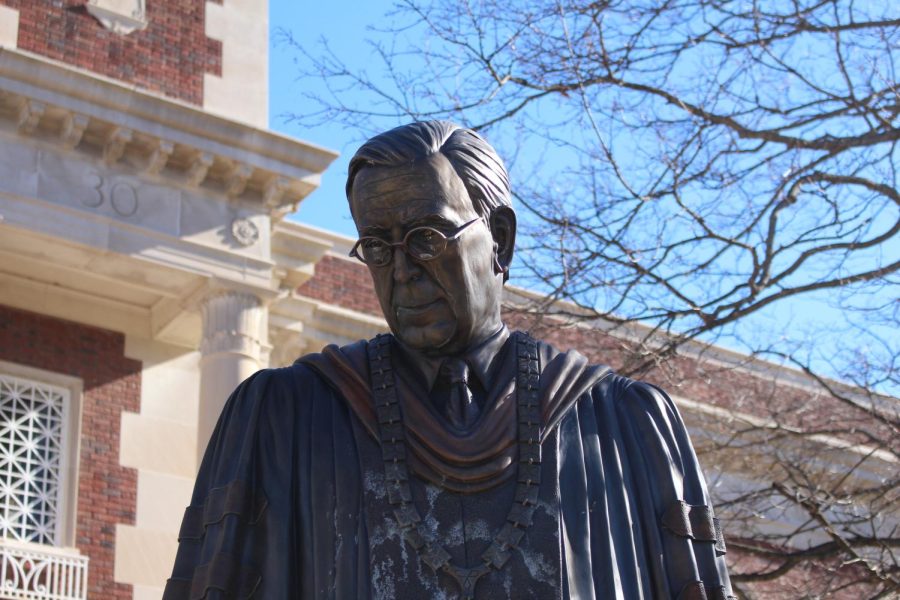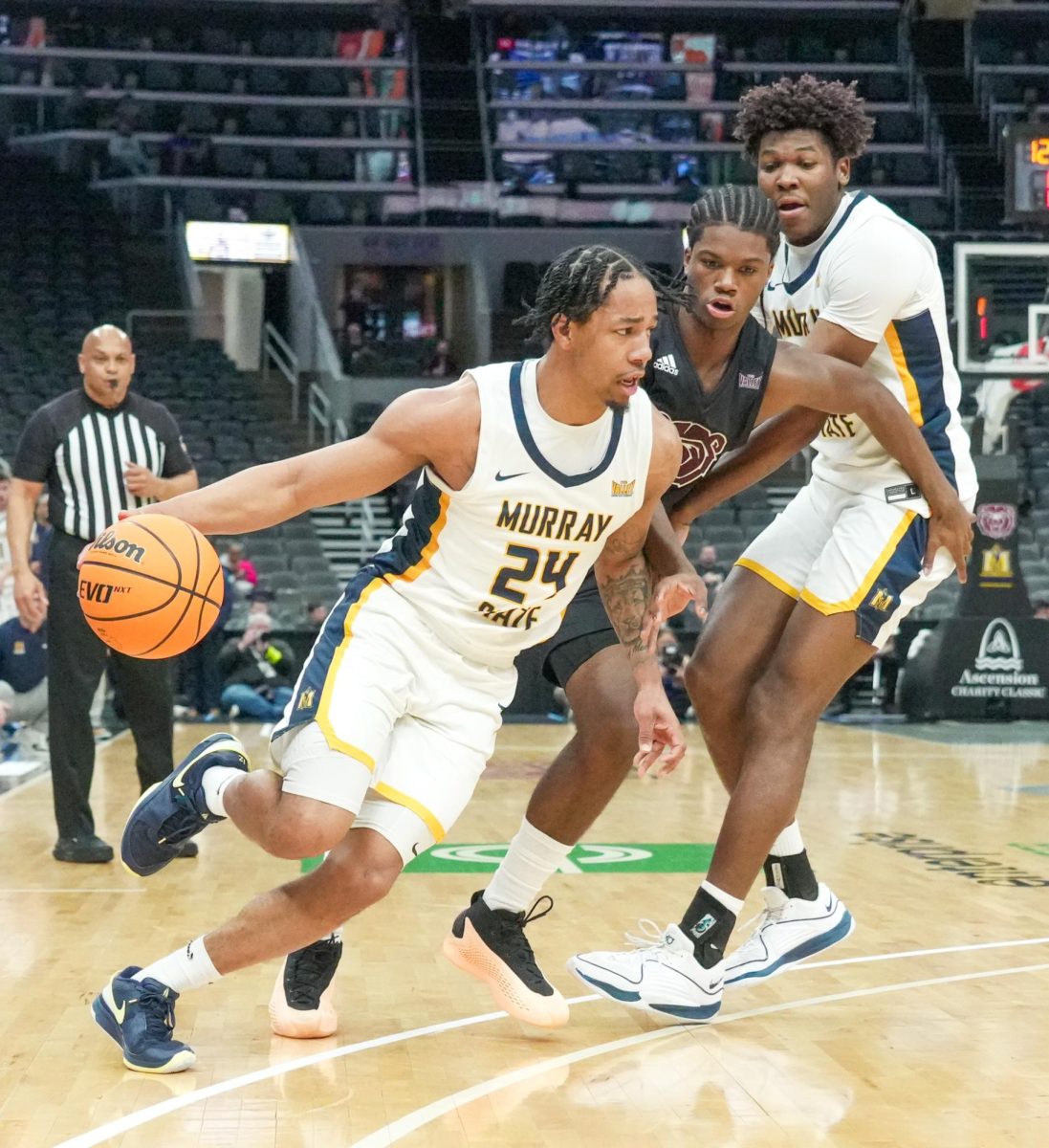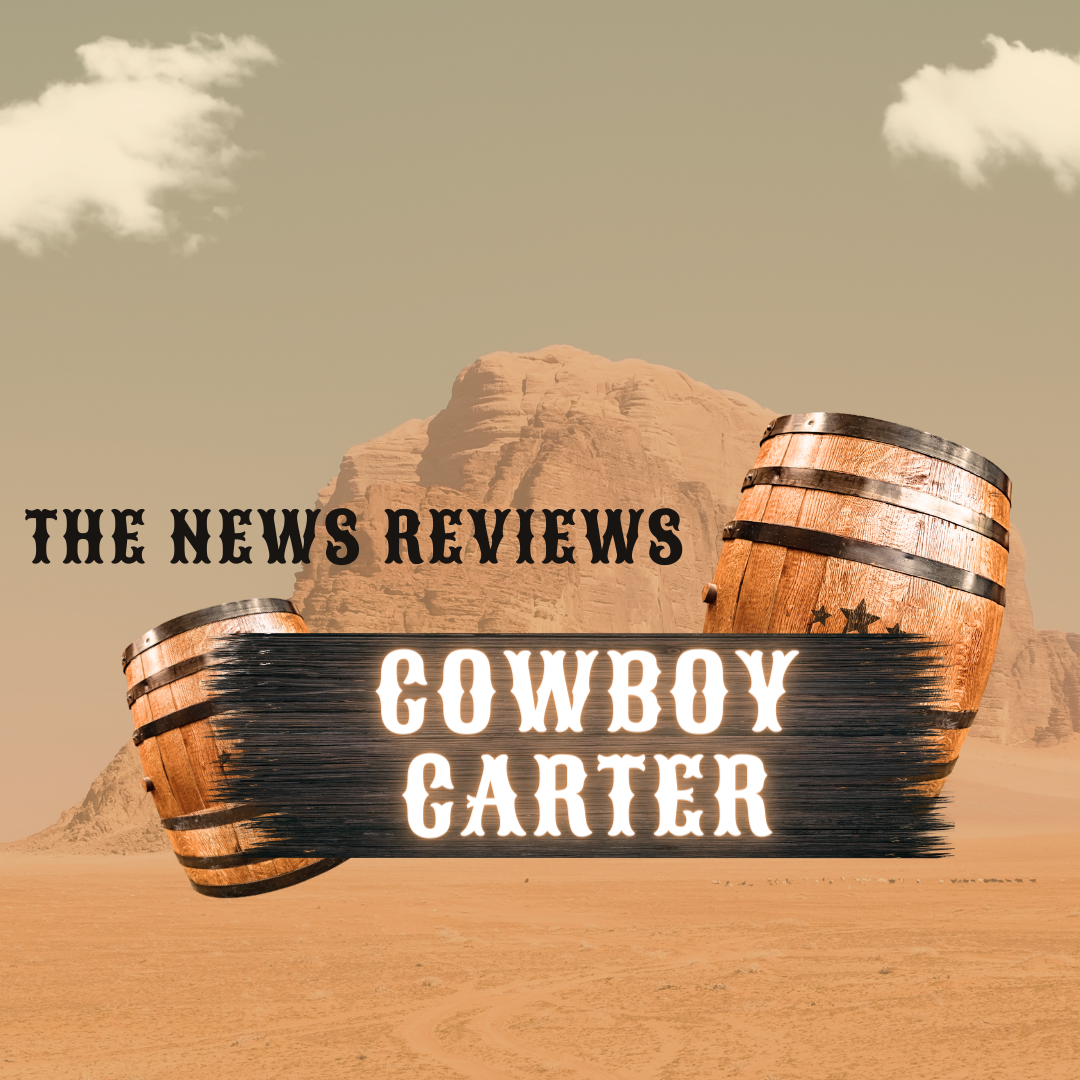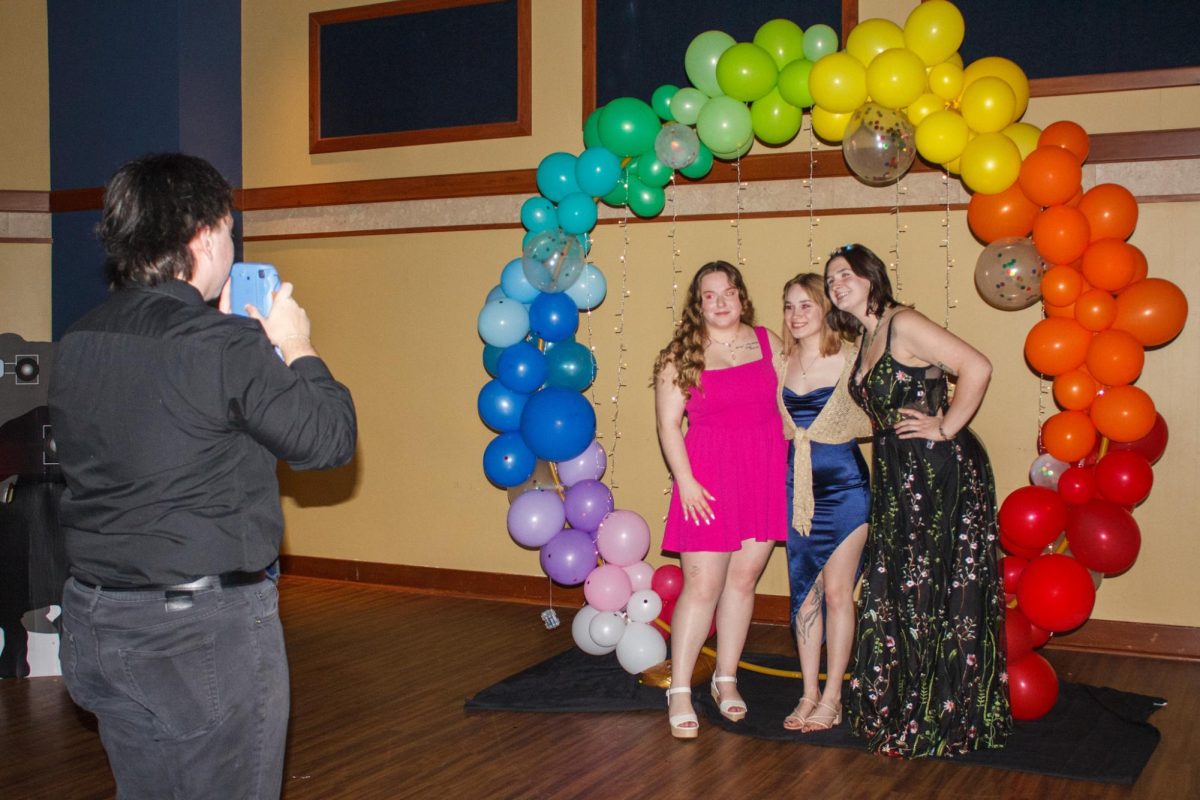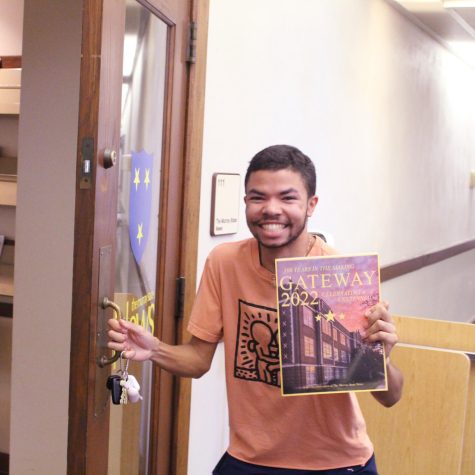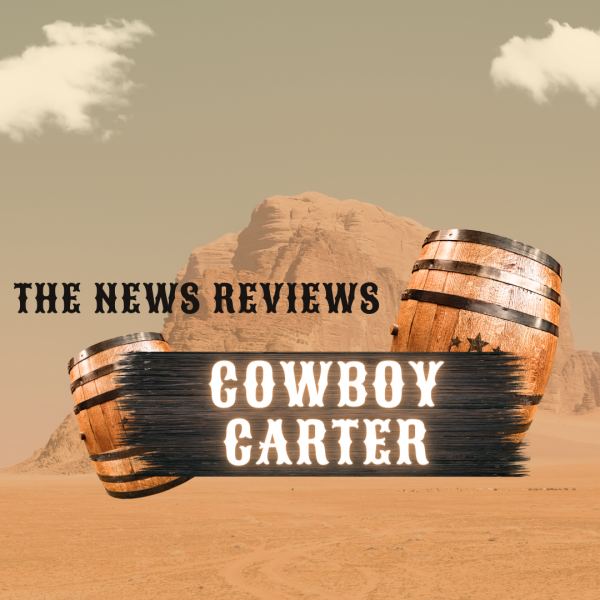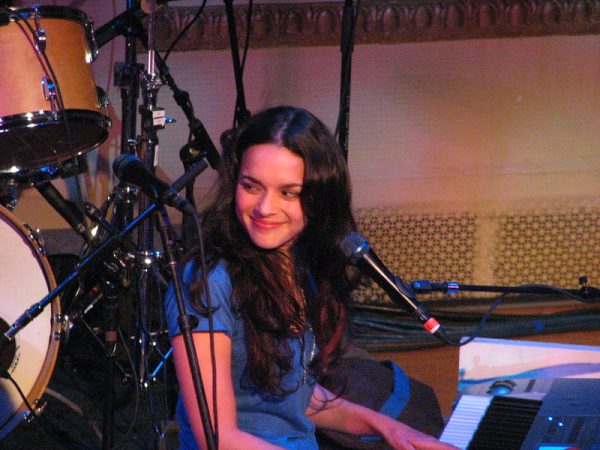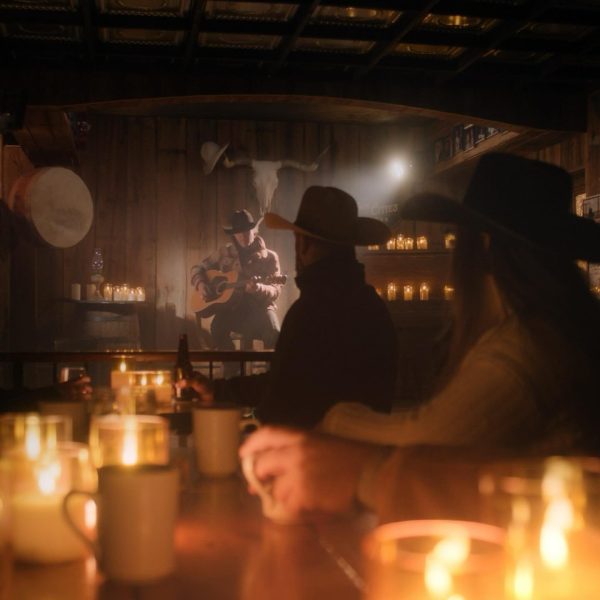Björk leads listeners on funky fungal trek in ‘Fossora’
October 13, 2022
Even though her career spans over four decades, Björk isn’t done exploring new auditory combinations, telling different stories and crafting worlds with her music, which is evident in her tenth studio album “Fossora.”
From Iceland, Björk Guðmundsdóttir, professionally referred to mononymously as Björk, debuted with an Icelandic alternative band, The Sugarcubes, in 1986. She later went on to release her first solo album “Debut” in 1993.
Since her solo beginnings, Björk has grown to be an internationally known name for her ambitious projects, blending electronic, orchestral, jazz and many other genres with her creative lyricism.
In her 2017 album, “Utopia,” Björk continues sharing the aftermath of the end of her 13-year relationship, which was more heartbreakingly explained in her 2015 album, “Vulnicura.” Björk focused on finding happiness again, though she was isolated.
In “Utopia,” Björk collaborated with Venezuelan electronic artist and producer Arca to create an orchestral sound with flutes and harps with electronic elements threaded in between. Overall, “Utopia” has a more ethereal and abstract sound in comparison to its successor, “Fossora.”
In an interview with Apple Music, Björk calls “Fossora” her “mushroom album” and describes it as heavy, messy and low-definition. Unlike “Utopia,” “Fossora” has well defined, grounded sounds that have less complex production and focuses on family and togetherness, which had been taken for granted during the COVID-19 pandemic.
Björk focuses on the usage of clarinets, percussive drums and jarring harmony, which is exemplified in the first track and lead single, “Atopos.”
“Atopos” starts the 13-track album with a striking harmony between clarinets and drums, juxtaposed with Björk’s streaming vocals, which sing about human harmony, union and connecting to others.
I enjoy the bizarre combination that devolves into a headbanging drum outro. Overall, it feels very minimal in comparison to what Björk has done in the past.
“Ovule” continues with the minimalist approach, backed by repeating harmonies of horns, drums and vocal humming. Björk sings about shedding old habits and recovering from a past that hurt her.
“Sorrowful Soil” is a standout track completely made of vocals and feels like a choir of Björk’s voice. She sings about motherhood and the sacrifices mothers make for their children, both biological and emotional. Overall, the track carries on a sullen and elegiac tone.
“Ancestress” also focuses on womanhood but in a more personal sense, with Björk singing about her female ancestors as they grow old. To further tie in the sense of motherhood, Björk is joined by her son Sindri Eldon.
Unlike the previous songs, “Ancestress’’ is more serene and orchestral backed. Björk’s vocals parallel the instrumentation, and while interesting, it allows for some awkward pauses and vowel stretches.
“Victimhood” starts with a droning horn intro that makes for an ominous atmosphere that slowly picks up with clarinets and drumming. Björk sings about sacrificing herself to save a relationship, most likely referring to her own.
The song’s instruments swell until there’s only a drum that parallels a heartbeat, and it grows more intense, until it devolves into vocal harmonies. I wish it grew into something more intense, rather than dissolving into quietness.
“Allow,” featuring Norwegian singer Emilie Nicholas, abandons the droning drums and is more flowery and uptempo, with a collection of wind instruments. Björk sings about elements of nature and humanity, blurring the lines between what she is describing.
“Fungal City,” featuring American artist Serpentwithfeet, begins with a choppy and cheerful clarinet. Toward the middle of the song, a sharp synth starts punching through, adding intensity. The intensity dissipates but returns toward the end, along with an orchestral uptake.
“Freefall” feels very like classic Björk. She sings about wanting to freefall into another’s arms but only if there is trust present. The song starts on a sorrowful note, but the meandering violin becomes quicker and choppier.
“Fossora” is a mindblowing and headbanging standout. The combination of clarinets and drumming feels full and cohesive, not as if it’s missing an element. The song speeds up and leaves with an aggressive electronic drumming outro. I love the instrumental intensity. It’s an element from Björk’s arsenal that she hasn’t used in a while.
“Her Mother’s House” features Björk’s daughter Ísadóra Bjarkardóttir Barney, furthering the theme of family and togetherness. The pair’s singing complements each other with Barney responding to Björk’s lyrics.
In the song, Björk compares a house to a heart—a mother’s home (heart) has space for all of her children. The song closes “Fossora” on a serene and optimistic note.
“Fossora” is a solid work with a great story and unique harmonies, but in terms of what Björk has done in the past, I don’t think “Fossora” is as strong and complete.
Because of the jarring musical combinations, I felt like some elements needed rearrangement in order for the songs to feel complete.. Björk has done minimal works in the past, but they still felt complete.
Though the instrumental feels lacking in certain areas, Björk’s lyrical strengths are on display.
After having the career she has had, it’s hard for me to not have high standards for Björk because she is someone who has inspired so many current artists and is a cultural phenomenon. At the end of the day, Björk doesn’t have anything to prove to the music world that she hasn’t already proven, so I’d love for her to lean more into experimentalism, to explore the unexplored.
“Fossora” deserves a 6.5 out of 10. Solid—but pales in comparison to what Björk has done in the past.
Having such an expansive career, whether Björk decides to produce another project or not, her influence, talent and experimentalism has left its mark on the music world.




